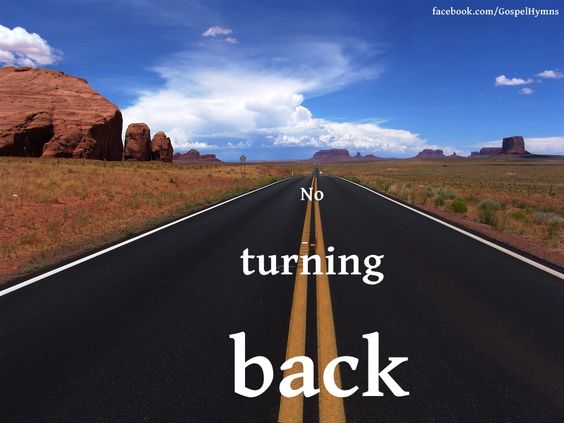

Recently my mechanic asked how many miles my car had. I replied, “168,000 miles.” He said I was overdue for a timing belt change. He told me to check my car’s manual for the recommended mileage to change the timing belt. It recommended 60,000 miles. I only missed it by a hundred thousand miles!
After my annual eye examination, this year, the doctor told me that my eye pressure was too high and that’s usually a sign of the early stages of Glaucoma. An eye specialist confirmed that my eyes needed immediate treatment. We tried special drops at first with minimal success. I didn’t like the drops because they burned a little. The specialist suggested a laser procedure called Lumenis SLT. The treatment was successful.
Timing belts must be replaced per the manufacturer’s recommendations. Failure to replace the belt can result in complete breakdown or catastrophic engine failure. There are no major symptoms that your timing belt is about to break. It’s a silent destroyer. Glaucoma is a condition that causes damage to your eye’s optic nerve and gets worse over time. It’s often linked to a buildup of pressure inside your eye. If the damage continues, glaucoma can lead to permanent vision loss. Most people with glaucoma have no early symptoms or pain. Glaucoma is often called the “sneak thief of vision.” Like a worn timing belt, it’s a silent destroyer.
The Bible warns us of another silent destroyer more devastating than a broken timing belt or glaucoma. Hebrews 12:15 NIV says, “See to it that no one falls short of the grace of God and that no bitter root grows up to cause trouble and defile many.” Roots are hidden below the surface. At first you can’t tell they are defiled, but bitter roots produce bitter fruit. All of us have been hurt by someone at some time in our life. If we dwell on that injustice, we will develop a bitter heart. At first, it is hidden deep within, but eventually manifests itself in anger, envy, judgmental attitudes, hate, immorality, depression and addiction. The Bible warns, bitter roots “grow up to cause trouble and defile many.” A bitter root not only has catastrophic results to the ones who harbor that bitterness, but to everyone they come in to contact with.
The Bible tells the story of Ruth and her mother-in-law Naomi who both lost their husbands and faced danger and extreme poverty. Naomi’s wound was so deep, she changed her name to Mara, which means “bitter.” She told everyone, “Don’t call me Naomi; call me Mara, because the Almighty has made my life very bitter” (Ruth 1:20 NIV). Naomi had suffered great loss, but she had no idea how her life was about to change for the good, and what great blessings were in store for her and her daughter-in-law Ruth. Most of her bitterness was toward God. She said, “I went away full, but the LORD has brought me back empty. Why call me Naomi? The LORD has afflicted me; the Almighty has brought misfortune upon me” (Ruth 1:21 NIV). The name Naomi means delightful and pleasant. She could no longer identify herself in anything other than her bitterness toward God.
Many people feel unforgiveness toward God. They ask the question, “If He loved me, why did He let that happen to me?” Their resentment toward God is because of unmet expectations. Just like Naomi, they can only see their life through the dark lenses of bitterness. And just like Naomi, they don’t realize the good things God has in store for them and how great His love is for them.
Most bitter roots in our hearts come from unforgiveness towards those who hurt us. Jesus told us, “If you forgive other people when they sin against you, your heavenly Father will also forgive you. But if you do not forgive others their sins, your Father will not forgive your sins” (Matthew 6:14-15 NIV). Forgiveness is giving up the right to get even. Holding a grudge and harboring unforgiveness is like drinking poison and waiting for your enemy to die.
What’s a sure tell-tale sign that you have unforgiveness? When your mind replays the incident when you were offended over and over in your mind and it continuously stirs up hurtful emotions. Jesus said this was the work of the tormentors who harass us until we let go of unforgiveness. Forgiveness is not condoning someone’s mistreatment towards you. Nor do you need to feel forgiveness towards that person to grant forgiveness to them. I find forgiveness towards someone who has hurt me comes quicker when I say out loud to myself and to God that I forgive them. I may not feel forgiveness towards them at that initial confession (I rarely do), but eventually a release does come. I know I need to do this exercise as soon as my mind starts to replay the hurtful incident again. I’ve got to release them before the tormentors come to imprison me in unforgiveness.
It’s impossible to go through life without being hurt and offended, but we don’t have to camp there. It’s our choice to hold on to offenses or release them through forgiveness. The word “bitter” is also translated as “bitter gall.” As Jesus was hanging on the cross, the solders offered him wine mixed with bitter gall to drink. In other words, sour vinegar. Jesus tasted it but refused to drink it. Jesus’ response was, “Father, forgive them, for they do not know what they are doing.” We can’t help but taste the bitterness of injury and injustice towards us. But like Jesus, we don’t have to drink it in and allow it to become a part of us. The key to being free of bitterness is to react like Jesus, and say, “Father, forgive them, for they do not know what they are doing.”
“Get rid of all bitterness, rage, anger, harsh words, and slander, as well as all types of evil behavior. Instead, be kind to each other, tenderhearted, forgiving one another, just as God through Christ has forgiven you” (Ephesians 4:31-32 NLT).








